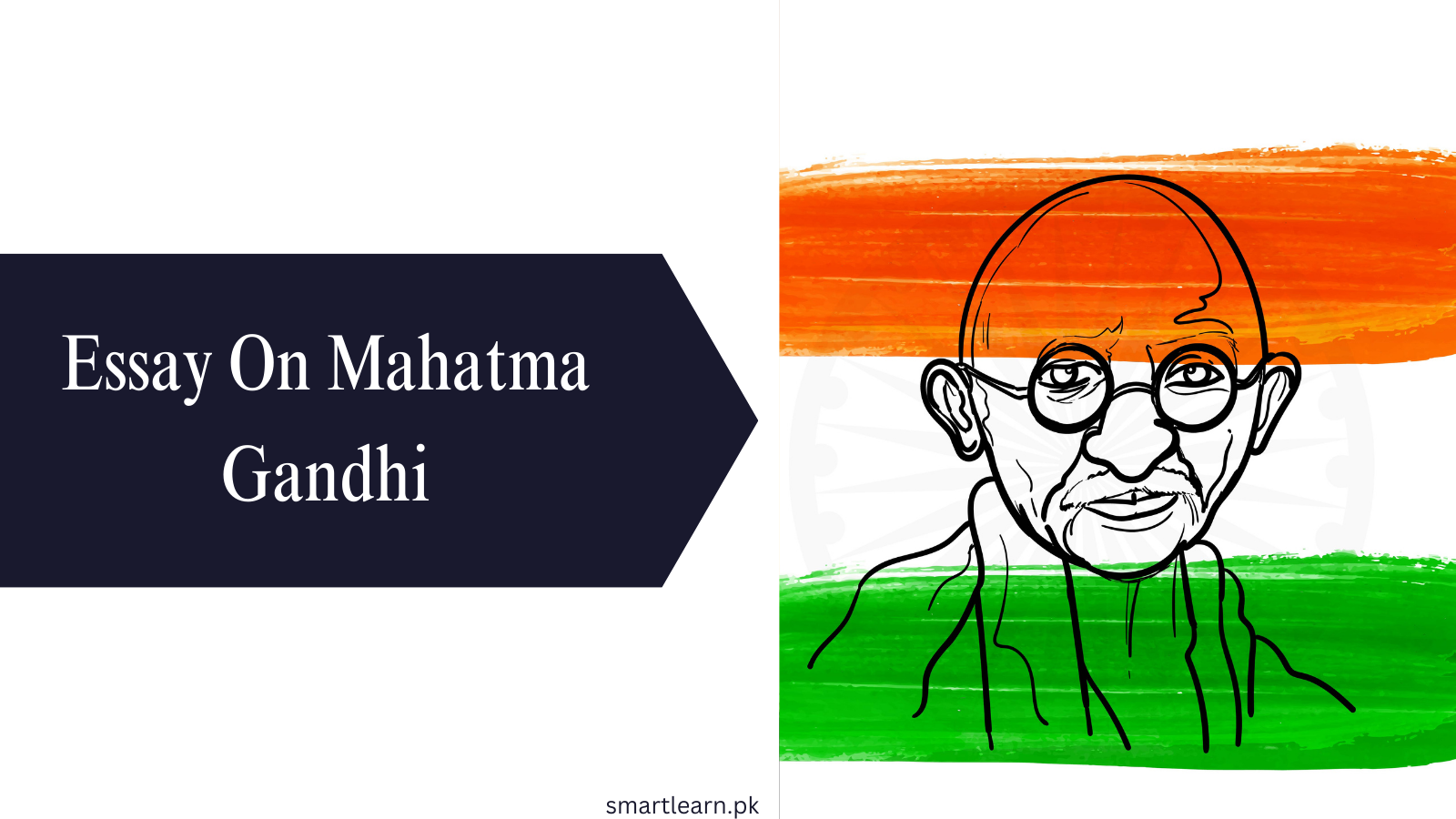
Essay On Mahatma Gandhi 150 Words
Mahatma Gandhi, recognized as the Father of the Indian nation, emerged as a prominent figure in India’s quest for independence from British rule. Born on October 2, 1869, in Porbandar, Gujarat, Gandhi’s profound teachings and principles have etched an enduring legacy globally, establishing him as an iconic symbol of non-violent resistance and social justice.
Central to Gandhi’s philosophy were the principles of Ahimsa (non-violence) and Satyagraha (truth force), which became the bedrock of India’s struggle for freedom. He steadfastly believed that violence only perpetuates more violence, advocating for lasting change through peaceful means. Gandhi’s leadership during pivotal events like the Salt March and Quit India Movement exemplified the potency of non-violent civil disobedience in achieving political objectives.
Beyond the fight for independence, Gandhi dedicated himself to dismantling the barriers of caste discrimination and fostering communal harmony. His vision encompassed an inclusive society where individuals from diverse backgrounds coexisted harmoniously.
Essay On Mahatma Gandhi 150 Words in Urdu
مہاتما گاندھی، جنہیں ہندوستانی قوم کا باپ بھی کہا جاتا ہے، برطانوی راج سے ہندوستان کی آزادی کی جدوجہد میں ایک نمایاں رہنما تھے۔ 2 اکتوبر 1869 کو پوربندر، گجرات میں پیدا ہوئے، گاندھی کی تعلیمات اور اصولوں نے دنیا پر انمٹ نقوش چھوڑے ہیں، جس سے وہ عدم تشدد کی مزاحمت اور سماجی انصاف کی لازوال علامت ہیں۔
گاندھی کا اہنسا (عدم تشدد) اور ستیہ گرہ (سچائی طاقت) کا فلسفہ ہندوستان کی تحریک آزادی کا سنگ بنیاد بن گیا۔ ان کا ماننا تھا کہ تشدد ہی مزید تشدد کو جنم دیتا ہے اور یہ کہ دیرپا تبدیلی صرف پرامن ذرائع سے حاصل کی جا سکتی ہے۔ ان کی قیادت نے مختلف مظاہروں کے دوران، جیسے سالٹ مارچ اور ہندوستان چھوڑو تحریک، سیاسی مقاصد کے حصول میں عدم تشدد کی سول نافرمانی کی طاقت کا مظاہرہ کیا۔
مزید برآں، ذات پات کے امتیاز کی رکاوٹوں کو ختم کرنے اور فرقہ وارانہ ہم آہنگی کو فروغ دینے کے لیے ان کی انتھک کوششیں نمایاں تھیں۔ اس نے ایک جامع معاشرے کا تصور کیا جہاں تمام پس منظر کے لوگ ہم آہنگی کے ساتھ ساتھ رہیں۔
Essay On Mahatma Gandhi 300 Words
Mahatma Gandhi, renowned as the Father of the Indian nation, stood as a transformative leader and a pivotal figure in India’s quest for independence from British rule. Born on October 2, 1869, in Porbandar, Gujarat, Gandhi’s life and teachings have left an enduring impact on the world, establishing him as an enduring symbol of non-violent resistance and social justice.
Gandhi’s philosophy, centered around Ahimsa (non-violence) and Satyagraha (truth force), became the foundational principles of India’s freedom movement. He staunchly held the belief that violence only perpetuates more violence, advocating for genuine and enduring change through peaceful means. His leadership during various protests illustrated the potency of non-violent civil disobedience in achieving political objectives.
Moreover, Gandhi underscored the significance of self-discipline and self-sacrifice in the pursuit of truth and justice. He exemplified the value of leading by example, embracing simplicity, and living a life of austerity.
Gandhi’s influence extended beyond India’s borders, inspiring civil rights leaders around the world, including Martin Luther King Jr. in the United States and Nelson Mandela in South Africa.
In conclusion, Mahatma Gandhi’s profound impact on India’s struggle for independence, his steadfast commitment to non-violence, and his dedication to social justice make him an iconic figure in history. His teachings continue to inspire individuals and movements worldwide, emphasizing the potential of peaceful resistance in effecting meaningful and transformative change. Gandhi’s legacy stands as a testament to the power of principled leadership and unwavering dedication to the greater good of humanity.
Essay On Mahatma Gandhi 500 Words
Mahatma Gandhi, recognized as the Father of the Indian nation, was an exemplary leader and a central figure in India’s struggle for independence from British colonial rule. Born on October 2, 1869, in Porbandar, Gujarat, Gandhi’s life and teachings have left an enduring impact on the world, solidifying his legacy as an enduring symbol of non-violent resistance, social justice, and ethical living.
Gandhi’s philosophy, rooted in Ahimsa (non-violence) and Satyagraha (truth force), served as the foundation of India’s freedom movement. He ardently held the conviction that violence only perpetuates more violence and that authentic and lasting change can only be achieved through peaceful means.
At the heart of Gandhi’s teachings was the principle of leading by example. He advocated that to inspire societal change, one must embody the change they seek. Consequently, Gandhi embraced simplicity, self-discipline, and a life of austerity. His personal choices, such as spinning his own cloth to promote self-reliance and encouraging others to do the same, exemplified his dedication to living in harmony with his beliefs.
Despite his immense impact, Gandhi remained humble and resolute in his pursuit of truth and justice. His unwavering commitment to non-violence in the face of adversity exemplified his strength of character and moral fortitude.
In conclusion, Mahatma Gandhi’s profound impact on India’s struggle for independence, his steadfast commitment to non-violence, and his advocacy for social justice and ethical living make him an iconic and revered figure in history. His teachings continue to inspire individuals and movements worldwide, emphasizing the power of peaceful resistance in effecting meaningful and transformative change. Gandhi’s life and principles serve as a timeless reminder of the potential of principled leadership and the pursuit of truth for the betterment of humanity.
